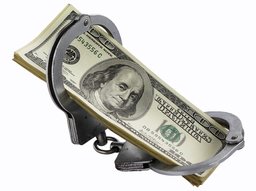People who are in debt are likely use to receiving constant phone calls and mailings from creditors. However, once a person files for bankruptcy this constant contact should come to a halt. If you still receive phone calls and mails from a creditor this, may be a form of harassment and you have certain rights.
Under U.S. Law, when a debtor files for bankruptcy one benefit he or she receives is creditors must stop all collection efforts against the debtor. Creditors who try to collect a debt during a bankruptcy or after a discharge is in violation of Federal bankruptcy law. When a bankruptcy is filed, an automatic stay prevents most creditors from continuing collection actions against a debtor. A debtor who continues to be contacted by a creditor, should contact their attorney’s office so the attorney can warn the creditor of a potential violation of the debtor’s automatic stay. The debtor should keep the mailing received or make a record of the phone call.
If the creditor continues to send notice of the debt to the debtor after being warned, the creditor can be dragged in front of a bankruptcy judge. This form of harassment is illegal, and no judge will be happy a creditor continued to contact a debtor after being notified of a bankruptcy filing. A judge will often order the creditor directly to stop.
 Jacksonville Bankruptcy Lawyer Blog
Jacksonville Bankruptcy Lawyer Blog






 When someone files for bankruptcy protection they don’t expect to have their discharged bills come back to haunt them.
When someone files for bankruptcy protection they don’t expect to have their discharged bills come back to haunt them.  Upon filing for bankruptcy protection, an automatic stay is put in place. This means that creditors can not try and collect from you. So a creditor cannot call you to request payment, send bills to you, garnish your wages anymore, or repossess your car without court permission. If there is a foreclosure suit against you, that suit must also stop immediately. If your home is sold and you filed prior to the sale, that sale can be vacated. Obviously, this is a powerful tool bankruptcy. Many people file to stop creditors from taking actions against them or their property.
Upon filing for bankruptcy protection, an automatic stay is put in place. This means that creditors can not try and collect from you. So a creditor cannot call you to request payment, send bills to you, garnish your wages anymore, or repossess your car without court permission. If there is a foreclosure suit against you, that suit must also stop immediately. If your home is sold and you filed prior to the sale, that sale can be vacated. Obviously, this is a powerful tool bankruptcy. Many people file to stop creditors from taking actions against them or their property.